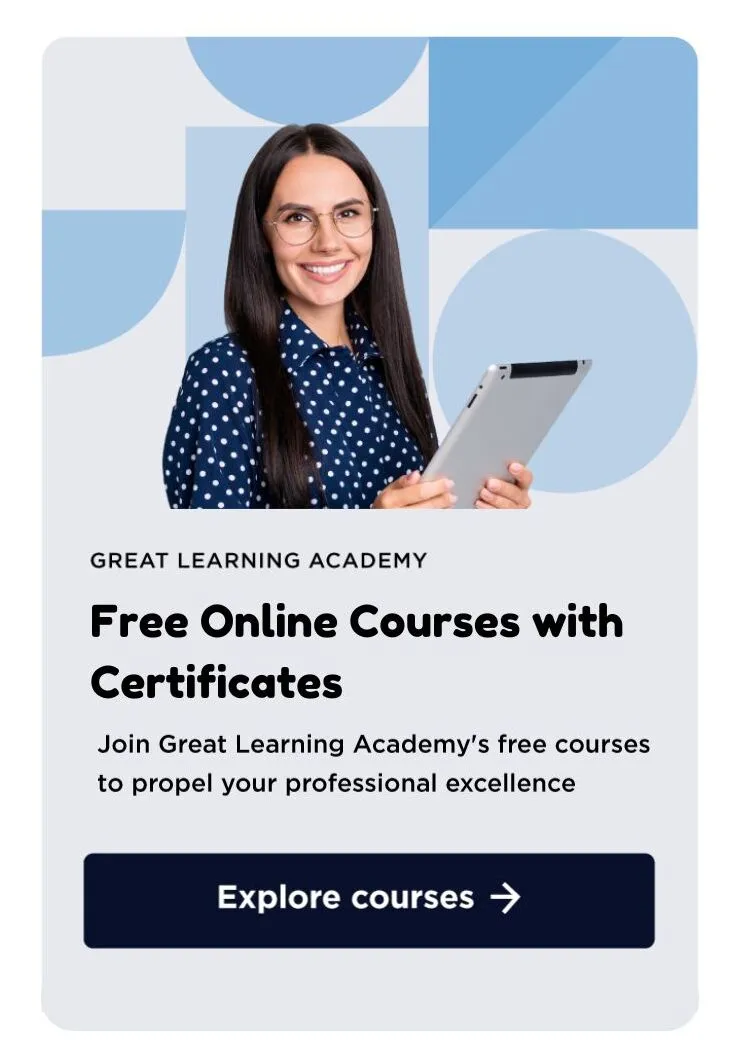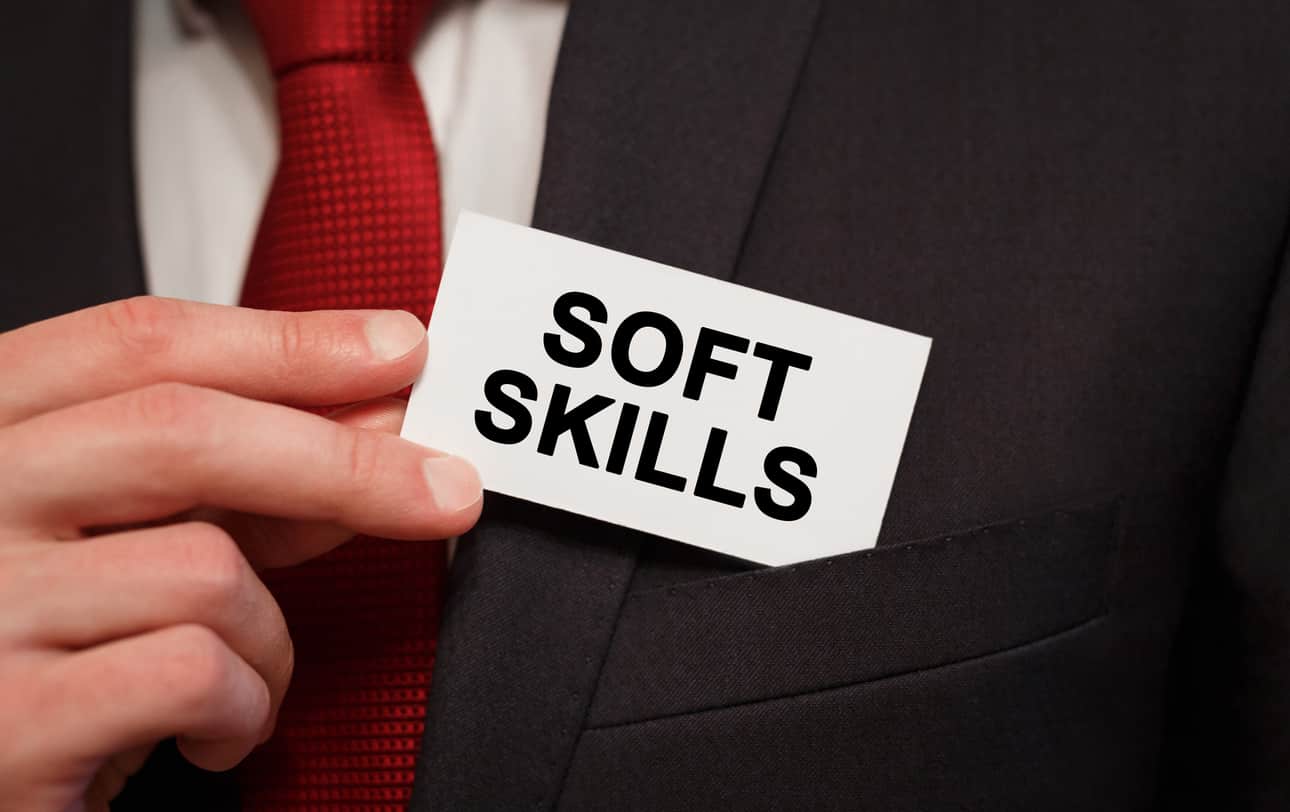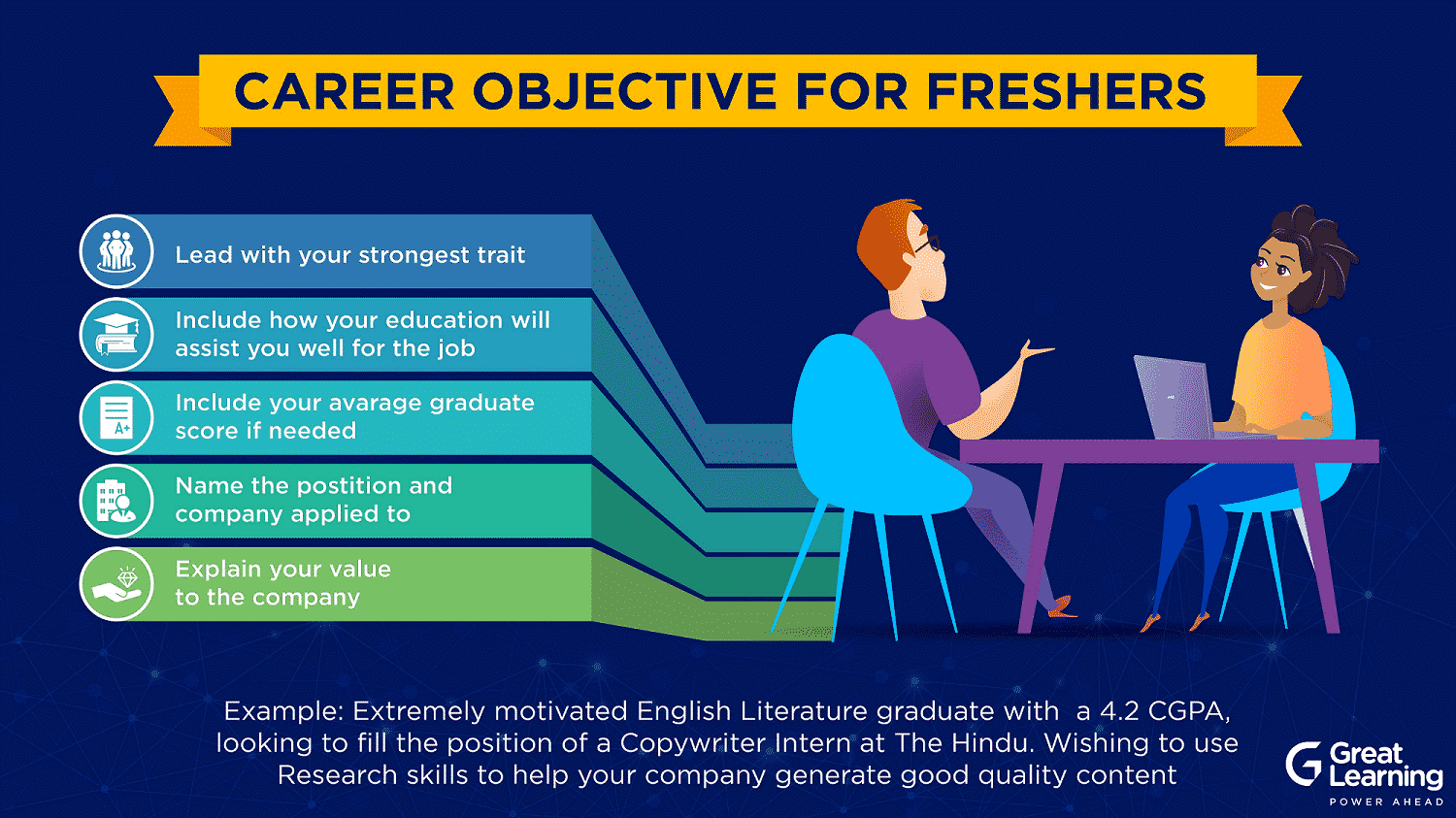
For freshers embarking on their professional journeys, this question can seem daunting, a test of their potential more than their experience. Experienced professionals, on the other hand, face the task of distilling years of expertise and achievements into a compelling narrative. In both cases, the challenge is to articulate what you bring to the table and how your specific skills, experiences, and personality traits align seamlessly with the role and the company’s vision.
This article aims to decode the essence of this pivotal question, providing a roadmap for crafting responses that resonate with authenticity and impact. Whether you’re a recent graduate stepping into the competitive job market or a seasoned professional seeking new horizons, mastering the art of answering “Why should we hire you?” can be the key to unlocking your next career milestone. Let’s embark on this journey of self-discovery and strategic expression to turn this challenging question into an opportunity to shine.
Understanding the Question
The question “Why should we hire you?” and its variations like “Why should I hire you?” or “Why should you be hired for this role?” are more than just standard interview queries; they are critical assessments of your fit for the position. When interviewers pose this question, their underlying intent is to gauge several key aspects:
Suitability for the Role: Interviewers want to match your skills and the job requirements. They want to know if you possess the technical abilities, soft skills, and relevant experience that make you an effective candidate for the role.
Alignment with Company Goals: Beyond your individual capabilities, employers are interested in how you will contribute to the organization’s broader objectives. They seek candidates who understand and share the company’s vision and values and who can contribute meaningfully to its mission.
Unique Value Proposition: This question also offers you a platform to differentiate yourself from other candidates. Employers are keen to discover what makes you unique. Is it your innovative problem-solving skills, exceptional team leadership, or ability to drive results under pressure? This is your moment to highlight your unique strengths and how they can benefit the company.
Cultural Fit: Cultural alignment is equally significant. Employers use this question to determine if you’ll thrive within the company’s work environment and team dynamics. They are looking for someone who not only can do the job but will do it in a way that complements and enhances the existing workplace culture.
Enthusiasm and Motivation: Your response reveals your motivation and enthusiasm for the position and the company. Employers favor candidates who show a genuine interest and excitement about the opportunity, which often translates to higher engagement and productivity.
Understanding these layers of the question is crucial in formulating your response. It’s not just about stating why you need the job but rather why the company needs you and how you can be a valuable asset to their team. Your answer should blend your professional skills, personal attributes, and an understanding of the company and its needs, creating a compelling case for why you are the ideal candidate for the job.
How to Answer “Why Should We Hire You?”
Answering the question “Why should we hire you?” is critical to any job interview. This question lets you demonstrate to the interviewer why you are the best fit for the position. Here are steps to help you formulate an effective and impactful answer:
Here are 10 sample responses tailored to different roles and situations:
1. Marketing Role
“As a marketing specialist with over five years of experience in digital campaigns, I bring a proven track record of increasing online engagement by 30%. My expertise in SEO and content marketing aligns perfectly with the needs of your team, and I am excited about using my skills to contribute to your company’s growth.”
2. Software Developer
“My expertise in full-stack development, particularly with modern frameworks like React and Node.js, aligns with the requirements of this role. In my previous job, I led a project that improved application performance by 50%, demonstrating my ability to deliver high-quality and efficient solutions.”
3. Customer Service Role
“With my strong communication skills and five years of experience in customer service, including a leadership role where I reduced call handling time by 20% without compromising customer satisfaction, I am well-equipped to enhance your team’s efficiency and customer relations.”
4. Entry-Level Position
“Although I am a recent graduate, my internships and academic projects have equipped me with key skills such as data analysis and project management. My fresh perspective and eagerness to apply my learnings make me a strong candidate for an entry-level position in your organization.”
5. Sales Professional
“In my previous role as a sales manager, I successfully exceeded sales targets by 25% for three consecutive years. My ability to build strong client relationships and an innovative approach to sales strategies would be a great match for your dynamic sales team.”
6. Human Resources
“With over seven years of experience in HR, including expertise in talent acquisition and employee engagement strategies, I have successfully revamped hiring processes to improve quality hires by 30%. My approach aligns with your company’s vision of fostering a dynamic and productive work environment.”
7. Finance Role
“As a certified accountant with a decade of experience in financial analysis and budget management, I’ve helped previous employers cut costs by up to 15% while maintaining efficiency. My skills in financial planning and analysis would be beneficial in managing your company’s financial strategies.”
8. Graphic Designer
“I bring a unique blend of creativity and technical expertise in design software, demonstrated in my portfolio, which includes award-winning designs and campaigns. My experience aligns with your company’s innovative and visually compelling design needs.”
9. Project Manager
“With 10 years of experience in project management, particularly in the tech industry, I have a track record of delivering projects within tight deadlines and budgets, often saving up to 20% in project costs. My leadership and organizational skills would be instrumental in driving your projects to success.”
10. Education Professional
“As an educator with a passion for curriculum development, I have designed programs that increased student engagement by 40%. My interactive and inclusive education approach fits well with your institution’s innovative teaching methods.”
Each of these responses is tailored to showcase specific skills and achievements relevant to the role, demonstrating the candidate’s suitability and potential value to the employer.
Answering as a Fresher
For freshers, the question “Why should we hire you?” can seem particularly daunting. Without a long history of professional experience to draw from, you are at a disadvantage. However, this is an opportunity to highlight your potential, adaptability, and the fresh perspective you can bring to the role.
When addressing questions like “Why should we hire you for fresher?” or “Why should we hire you with no experience?”, it’s essential to pivot the focus to your academic achievements, internships, extracurricular activities, and most importantly, your eagerness to learn and grow. Here’s how you can structure your response:
Highlight Academic Achievements: Begin by discussing your academic background. Emphasize any relevant courses, projects, or research that align with the job role. Show how your education has prepared you with foundational knowledge and skills pertinent to the position.
Showcase Internship Experience: If you have internship experiences, discuss them. Highlight any specific projects or tasks you undertook, the skills you developed, and how these experiences have given you a practical understanding of the work environment.
Demonstrate Learning Agility: Employers seek candidates who can quickly learn and adapt. Emphasize your ability to absorb new information, adapt to new environments, and apply your learning effectively. Share examples from your academic or extracurricular experiences that demonstrate these qualities.
Present Soft Skills: Soft skills like teamwork, communication, problem-solving, and time management are highly valued. Give examples of how you’ve developed and applied these skills, perhaps during group projects, presentations, or while organizing events.
Exhibit Enthusiasm and Commitment: Your enthusiasm for the role and the company can significantly influence the interviewer’s decision. Express your genuine interest in the field and eagerness to start your professional journey with their organization.
Align With the Company’s Goals: Show that you’ve done your homework about the company. Discuss how the company’s values and mission resonate with your professional goals and aspirations.
A sample answer might go like this: “My academic background in [field] and my internship experience at [company] have equipped me with skills in [relevant skills], like [specific examples]. These experiences have honed my ability to [mention relevant soft skills] and adapt to new challenges swiftly. I am excited about the prospect of bringing this knowledge and enthusiasm to the [specific role] at [company name], aligning with your mission of [mention something about the company’s goals or values].”
Remember, as a fresher, your answer should communicate what you’ve learned and how you’re ready and eager to apply it in a professional setting while continuously growing and contributing to your new workplace.
Structuring Your Response
Crafting a well-structured response to the question “Why should we hire you?” can greatly impact the persuasiveness and clarity of your answer. A proven technique to achieve this is the STAR method (Situation, Task, Action, Result). This method allows you to present your experiences and skills in an engaging narrative that clearly demonstrates your capabilities and achievements. Here’s how to apply the STAR method effectively:
Situation: Begin by setting the context. Describe a situation or challenge you faced that is relevant to the job you’re interviewing for. This could be a project at school, a task during an internship, or any scenario where you had to use skills pertinent to the job.
Task: Next, explain the task or objective that was required in that situation. What were you responsible for? This part of your answer should clarify your role and your expectations in that specific situation.
Action: This is where you delve into your specific actions to address the task. Focus on what you did, how you did it, and why you chose to do it that way. Be specific about your involvement, and highlight skills and attributes relevant to the role you’re applying for.
Result: Conclude with the result of your actions. What was the outcome? Whenever possible, quantify your success with data or specific achievements. This demonstrates the effectiveness of your actions and showcases the impact you can make.
Using the STAR method, your answer becomes a compelling story illustrating your skills and value. For instance, when asked, “Why should we hire you?” a response using the STAR method might go like this:
“In my final year at university (Situation), I was tasked with leading a team project to develop a marketing plan for a local business (Task). I coordinated with the team to assign roles based on each member’s strengths, set a project timeline, and facilitated regular meetings to track progress (Action). As a result, we delivered a comprehensive marketing strategy that was well-received by the client and even implemented by them, leading to a 20% increase in customer engagement within three months (Result). This experience honed my project management and teamwork skills, which are crucial for your company’s [specific role].
Structuring your response with the STAR method makes your answer more organized and impactful and helps you remain focused and concise, ensuring that you convey the most important aspects of your experience and how they make you an ideal candidate for the role.
Role-Specific Examples
When responding to role-specific queries like “Why should we hire you in BPO” or similar positions in other industries, it’s crucial to tailor your answer to showcase the skills and qualities that are particularly valued in that sector. Each industry and role has its unique set of requirements, and your answer should reflect an understanding of these needs, along with your capability to fulfill them effectively. Here are some examples for different industries:
Example for BPO (Business Process Outsourcing):
In a BPO setting, employers typically look for excellent communication skills, the ability to handle stress and complex situations, and strong problem-solving abilities. Your answer could be structured as follows:
“In my previous role as a customer service representative (Situation), I was responsible for handling customer queries and resolving complaints (Task). I consistently maintained a calm demeanor and actively listened to understand customer issues (Action). As a result, I could resolve conflicts effectively and received commendations for achieving a 95% customer satisfaction rate (Result). My ability to communicate effectively and handle stressful situations makes me well-suited for a role in your BPO team.”
Example for Tech Industry:
For a role in the tech industry, focus on your technical skills, innovation, and ability to work in fast-paced environments.
“As a software engineering intern (Situation), I was tasked with developing a new feature for our product (Task). I collaborated with the team and utilized my coding skills in Python and JavaScript to build the feature (Action). The feature was implemented successfully and led to a 10% increase in user engagement (Result). My technical expertise and innovative approach align well with the demands of a role in your tech company.”
Example for Healthcare:
In healthcare, emphasize compassion, attention to detail, and technical skills.
“While volunteering at a local clinic (Situation), I was involved in patient care and administrative tasks (Task). I used my organizational skills to streamline patient records and demonstrated empathy and care in patient interactions (Action). This led to improved patient satisfaction and more efficient operations in the clinic (Result). My blend of technical skills and compassionate approach make me a strong candidate for a role in your healthcare facility.”
Example for Education:
For educational roles, highlight your teaching skills, patience, and ability to inspire and engage students.
“As a student teacher (Situation), I was responsible for conducting lessons for a class of 30 students (Task). I developed interactive lesson plans and used diverse teaching methods to cater to different learning styles (Action). This approach resulted in improved student engagement and a noticeable improvement in their overall academic performance (Result). My passion for teaching and ability to create an inclusive learning environment are assets I would bring to a teaching role in your institution.”
By tailoring your response to the specific requirements of the role and industry and backing your claims with real-life examples, you make your answer more credible, relevant, and impactful. This approach demonstrates both your suitability for the role and your understanding of the industry and its specific challenges.
Showcasing Your Potential
When interviewers ask, “Why should we select you?” or “What makes you the best candidate for this project?” they invite you to showcase your skills and experiences, potential, and ambition. This is your opportunity to present yourself as a future asset to the company, someone who can grow, contribute significantly and bring fresh perspectives. Here’s how you can effectively demonstrate your potential:
Highlight Your Ambition and Vision: Clearly articulate your career ambitions and how they align with the company’s goals. Show that you think about the future and are invested in long-term growth – both personally and for the company.
Demonstrate Your Eagerness to Learn and Adapt: Employers value candidates who are adaptable and eager to learn. Talk about times when you had to learn something new quickly or adapt to changes and how those experiences have prepared you for new challenges.
Showcase Leadership and Initiative: Even if you are not applying for a leadership role, demonstrating instances where you took the initiative or led a project successfully can strongly indicate your potential.
Use Real-Life Success Stories: Share specific examples of your past achievements that are relevant to the role. This could include projects you spearheaded, challenges you overcame, or innovative ideas you implemented.
Explain How You Can Add Value: Be specific about contributing to the company. Identify a problem or area of improvement within the company and suggest ways you could make a difference.
Real-Life Success Stories
Example 1: Innovative Problem-Solver: “In my previous role as a marketing intern, the company faced low social media engagement (Situation). I proposed and implemented a new content strategy focused on interactive posts and user-generated content (Action). This strategy led to a 30% increase in engagement within three months (Result), showcasing my ability to bring innovative solutions to existing problems.”
Example 2: Adaptable and Fast Learner: “During my tenure at [previous company], I was quickly moved from a junior developer to a project lead within a year (Situation) due to my ability to rapidly learn new technologies and efficiently manage team dynamics (Task). I successfully led the team through several critical project deadlines (Action), resulting in the on-time delivery of high-quality software solutions (Result). My adaptability and fast learning capability make me an ideal candidate for this dynamic industry.”
Example 3: Visionary with a Growth Mindset: “While working for [Company X], I initiated a project to explore emerging markets in [region] (Situation). Despite initial skepticism, my thorough research and strategic planning convinced the management to proceed (Action). This project opened new revenue streams and increased our market share by 15% in two years (Result), demonstrating my ability to identify and capitalize on growth opportunities.”
In each of these examples, the candidate effectively showcases their potential through concrete examples of past achievements, illustrating how they can bring similar success to the new role. By doing so, you answer the question and paint a picture of your future contributions and growth within the company.
Common Pitfalls and How to Avoid Them
Navigating job interviews can be challenging, and when answering the question “Why should we hire you?” there are common pitfalls that candidates, both freshers and experienced professionals, can fall into. Being aware of these pitfalls and knowing how to avoid them can significantly enhance the effectiveness of your response.
Avoiding Generalities and Vagueness
One of the most common mistakes is giving a generic or vague answer that could apply to anyone. Answers like “I am hardworking and enthusiastic” are too broad and don’t distinguish you from other candidates.
How to Avoid: Customize your response by providing specific examples demonstrating your qualities. For instance, instead of simply stating that you are hardworking, you could say, “In my previous role, I consistently met and exceeded project deadlines, often contributing extra hours to ensure high-quality work. For example, during [specific project], I [describe what you did], leading to [specific outcome].”
Aligning Your Response with the Role and Company
Another pitfall is not tailoring your response to the specific role and company you’re applying to. A response that is not aligned with the job’s requirements or the company’s values and goals can come across as unprepared or disinterested.
How to Avoid: Research the company and understand the job description thoroughly. Then, align your skills, experiences, and values with the company’s needs. Mention specific aspects of the company or role that excite you and relate them to your own skills and experiences.
Overuse of Technical Jargon
Especially for experienced professionals, there can be a tendency to overuse technical jargon. While showcasing your technical expertise is important, too much jargon can make your answer difficult for non-specialist interviewers.
How to Avoid: Use technical terms appropriately and explain them if necessary. Ensure your answer remains accessible to all interview panel members. For example, instead of saying, “I utilized SQL, Python, and R for complex data analysis,” you might say, “I used advanced tools like SQL for database management, Python for data processing, and R for statistical analysis to derive actionable insights from large datasets.”
Over-emphasizing Qualifications Over Fit
Some candidates focus too much on their qualifications and fail to address how they fit into the team or company culture.
How to Avoid: Along with discussing your qualifications, emphasize how you would fit within the team and contribute to the company culture. Share examples of how you’ve successfully worked within diverse teams or adapted to new corporate environments.
Lack of Enthusiasm
A lack of enthusiasm in your response can be a major drawback. Even if you have all the right qualifications, a lack of passion for the role or the company can be a dealbreaker.
How to Avoid: Show enthusiasm for the role and the company. Talk about what excites you about the opportunity and why you’re passionate about working there. For instance, “I am particularly excited about this role at [Company] because of its innovative approach to [specific company attribute or project], which aligns with my passion for [related personal interest or experience].”
By avoiding these common pitfalls and tailoring your response with specific, relevant examples, you can make a strong, memorable impression on your interviewers. This approach demonstrates your qualifications for the role and your thoughtfulness, preparation, and genuine interest in the opportunity.
Advanced Tips for Experienced Professionals
For seasoned professionals, the question “Why should I hire you?” is an opportunity to showcase the depth of your experience and the tangible results you’ve achieved in your career. Here are some advanced tips to help experienced candidates craft compelling responses:
1. Leverage Your Unique Experiences and Achievements:
Your career journey is unique, and it’s important to communicate this effectively. Focus on experiences and achievements that set you apart from other candidates. Discuss challenges you’ve overcome, leadership roles you’ve assumed, and innovative solutions you’ve implemented.
Example: “In my previous role as a project manager, I led a team through a challenging turnaround project. We had to deliver a complex software solution within a tight deadline. My approach, which combined agile methodologies with risk management strategies, not only ensured the timely delivery of the project but also resulted in a 20% increase in efficiency.”
2. Showcase Impact and Results:
When discussing past roles and projects, emphasize the impact of your work. Use quantifiable results to underscore your contributions, such as revenue growth, cost savings, or improvements in efficiency or productivity.
Example: “As a sales director, I spearheaded a strategic shift in our sales approach, which involved training the team in consultative selling techniques. This shift resulted in a 35% increase in sales over two years, significantly expanding our market share.”
3. Discuss Industry Insights:
Your experience has given you a deep understanding of industry trends and challenges. Share your insights on these topics and how they shape your approach to your work. This demonstrates your strategic thinking and ability to add value beyond your immediate role.
Example: “Having worked in the renewable energy sector for over a decade, I’ve witnessed firsthand the shifts in consumer behavior and regulatory changes. My approach to project management in this space has always been informed by these broader trends, allowing me to lead projects that are not only successful in the short term but sustainable in the long run.”
4. Tailor Your Answer to the Company’s Future:
Research the company’s goals and challenges. Discuss how your experience can contribute to their future objectives. This shows that you’re not just looking for any job but are interested in a role where you can contribute meaningfully.
Example: “I understand that [Company] wants to expand into Asian markets. In my previous role, I played a key role in our company’s expansion into Malaysia and Singapore, overcoming both market entry challenges and cultural barriers, resulting in a successful and profitable expansion.”
5. Include Case Studies of Success:
Real-life examples or case studies are powerful ways to demonstrate your skills and expertise. Choose a relevant case study and briefly outline how you navigated the situation, what actions you took, and the outcomes achieved.
Example: “At [Previous Company], we faced a significant challenge when one of our main suppliers went bankrupt. As the lead of the procurement team, I quickly devised and implemented a contingency plan, which involved identifying and vetting alternative suppliers within a stringent timeline. This swift action prevented a production halt, saving the company an estimated $2M in potential losses.”
By incorporating these advanced tips into your response, you can effectively communicate the breadth and depth of your experience. These responses go beyond listing qualifications, showcasing how your experiences make you an ideal candidate for the role and a valuable asset to the company.
Conclusion
Crafting a strong conclusion to your response to “Why should we hire you?” is crucial in leaving a lasting impression on your interviewers. Whether you are a fresher or an experienced professional, the way you wrap up your answer can significantly influence the interviewer’s perception of your fit for the role. Here’s how you can conclude your response effectively:
1. Reiterate Your Unique Value Proposition: Summarize the key points of your response by emphasizing what sets you apart. This could be your unique combination of skills, experiences, or your approach to work. Ensure this recap aligns closely with the role’s needs and the company’s.
Example: “To sum up, my hands-on experience in digital marketing, combined with my proven track record in increasing online engagement, aligns perfectly with the goals of your team. I bring these technical skills and a commitment to fostering a collaborative and innovative team environment.”
2. Align with the Company’s Goals: Briefly restate how your skills and experiences make you a valuable asset in achieving the company’s objectives. Showing that you understand and are invested in the company’s future demonstrates your commitment and potential as a long-term asset.
Example: “I am particularly excited about the opportunity to contribute to your company’s growth in the emerging markets sector, an area where I have significant experience and success.”
3. End with Confidence and Enthusiasm: Conclude your response confidently and enthusiastically. Express your eagerness and readiness to bring your skills to the role and your excitement about possibly joining the team.
Example: “I am enthusiastic about the prospect of bringing my expertise and energy to your team and am confident that my unique skill set makes me a strong fit for this role.”
4. Leave the Door Open for Further Discussion: Invite any follow-up questions or discussions. This shows that you are open to engagement and are confident in your qualifications.
Example: “I welcome any further questions you might have about my fit for this role, and I am eager to explore how I can contribute to your team’s success.”
By concluding your response with a clear and confident summary of your qualifications, alignment with the company’s goals, and eagerness to contribute, you effectively reinforce your candidacy for the role. This approach leaves the interviewers with a clear understanding of your value proposition and enthusiasm for the opportunity, making your response memorable and impactful.
Call to Action
As you prepare for your next job interview, remember that the question “Why should we hire you?” is more than just a routine part of the process; it’s a critical opportunity to showcase your unique value to potential employers. To make the most of this opportunity, it’s essential to practice and refine your answers, taking into account the strategies and examples provided in this article.
Practice Makes Perfect
Start by reflecting on your experiences, skills, and achievements. Write down a few versions of your response, using the STAR method and tailoring your answer to specific roles and industries. Practice delivering these answers out loud, either by yourself or in a mock interview setting with a friend, family member, or mentor. The more you practice, the more natural and confident your response will become.
Seek Feedback
Don’t hesitate to ask for feedback on your answers. Whether from peers, mentors, or professional networks, constructive feedback can provide invaluable insights into how your response is perceived and where you can improve.
Share Your Experiences
One of the best ways to learn and grow is by sharing experiences with others. We invite you to share your stories and success stories in job interviews, especially in response to the question, “Why should we hire you?” By sharing, you not only contribute to your own learning but also help create a community of support and continuous improvement.
Stay Open to Learning
Finally, remember that each interview is a learning experience. Whether you get the job or not, something valuable will always be gained. Reflect on your performances, note what worked well and what didn’t, and refine your approach.
Please use the advice and examples from this article as a starting point. Adapt them to your own experiences and style, and continue to build on them as you grow in your career. Your journey is unique, and your interview responses should reflect your individuality and strengths. Good luck, and we look forward to hearing about your successes and learnings in the journey ahead!







